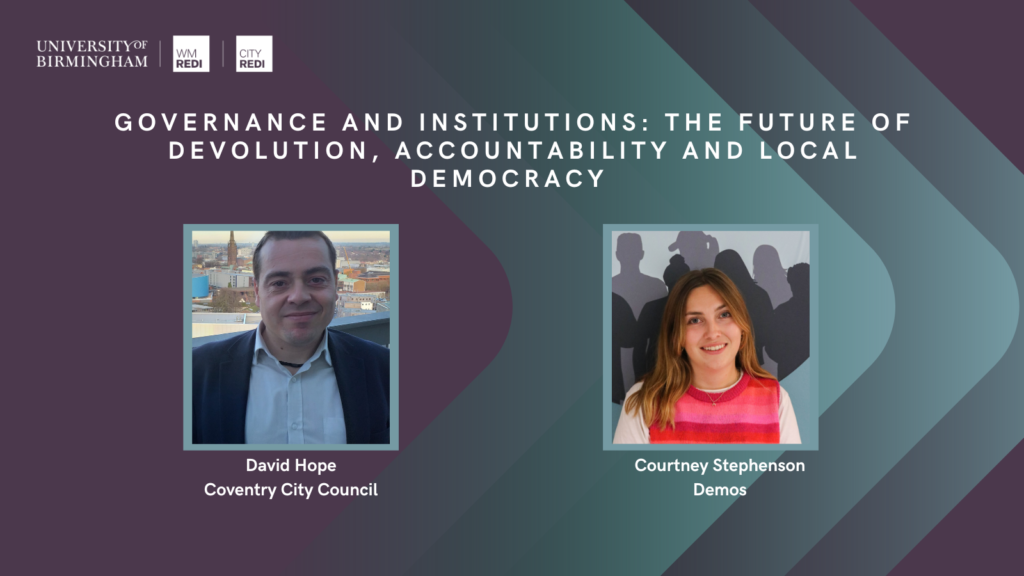
On 21st June, WMREDI held a hybrid seminar with Courtney Stephenson from Demos and David Hope from Coventry City Council discussing what we can learn from governance and institutional structures over the last ten years to support future economic growth.
The last ten years have seen considerable change in tiers of local and regional governance structures and funding available to address local inequalities. Changes include the establishment of Combined Authorities, the creation and now disbandment of Local Enterprise Partnerships as well as the ending of eligibility for European Structural and Investment Funds and successive waves of short-term funding for local economic growth policies. Key questions exist regarding the future of devolution, accountability and local democracy.
This seminar, from the West Midlands Regional Economic Development Institute (WMREDI), examined what we can learn from governance and institutional structures over the last ten years to support future economic growth.
David Hope reflected on the last 10 years of local authority local growth funding and structures including the transition from the formation of LEPs to where we are now. David will outline challenges and opportunities relating to governance and institutions going forward.
Courtney Stephenson focused on Demos’ recent research in the Tees Valley, which looked to carry out a ‘progress check’ into levelling up in the area, specifically the impact of having a metro mayor and combined authority. The research draws on the lived experience of people from across the Tees Valley, through a series of focus groups. Courtney will talk through some of the key findings from the research and how they relate to the topics of devolution, accountability and local democracy. Identifying mistrust of politics and politicians, both at the national and local level, her presentation will offer insights into how democratic and participatory innovations could enable local people to engage more closely with the policymaking process.
